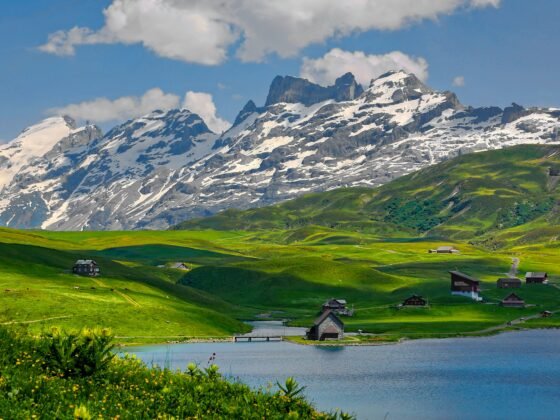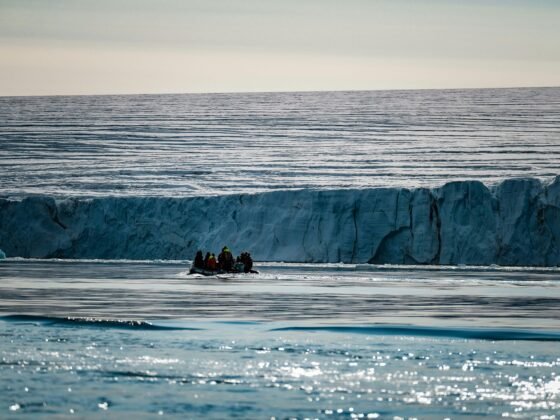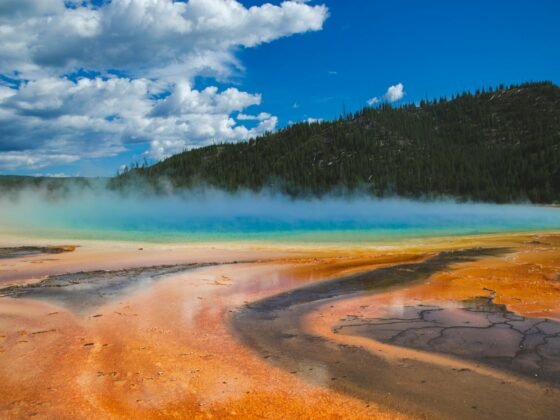The Smoky Mountains, spanning the border between Tennessee and North Carolina, are a haven for camping enthusiasts. Known for their rolling peaks shrouded in mist and rich cultural history, these mountains offer a unique outdoor experience. On the Tennessee side, especially, the blend of natural beauty and local charm creates an ideal backdrop for any camping adventure. Whether you’re a seasoned camper or a first-timer, understanding the nuances of camping in this region is key to a memorable and safe experience.
1. Choosing the Right Campsite
Selecting the right campsite is crucial for your camping trip in the Smoky Mountains. Factors to consider include the type of camping experience you’re after – whether it’s backcountry solitude or the convenience of established campgrounds. Consider the proximity to hiking trails, water sources, and scenic views. Some sites might offer more amenities, while others might bring you closer to nature. Evaluate accessibility, especially if traveling with family or less experienced campers. Take time to research and pick a site that aligns with your camping style and experience level, also considering the local wildlife and weather conditions to ensure a safe and enjoyable experience.
2. Exploring Campgrounds in Pigeon Forge
For those looking to explore the Tennessee side of the Smokies, the campgrounds in Pigeon Forge, TN, offer a combination of scenic beauty and adventure. These campgrounds cater to a range of preferences, from RV hookups and cabin rentals to traditional tent camping spots. Many are ideally situated near popular attractions like Dollywood and the Great Smoky Mountains National Park. This makes them perfect for adventurers who want to immerse themselves in outdoor activities while still being close to local entertainment and sightseeing opportunities. Whether you’re seeking thrilling outdoor experiences or a peaceful time in nature, these campgrounds provide the perfect base for all your Smoky Mountain adventures.
3. Understanding the Weather Patterns
Weather in the Smoky Mountains can be unpredictable, and being prepared is crucial. The region experiences all four seasons, with conditions ranging from hot and humid summers to cold, snowy winters. Spring and fall can bring rapid weather changes, so it’s essential to pack for all scenarios. Always check the weather forecast before your trip and prepare with appropriate clothing and gear. Remember, the weather in the mountains can change quickly, so be ready to adapt.
4. Wildlife Safety and Etiquette
The Smokies are home to a diverse array of wildlife, including black bears, deer, and numerous bird species. While wildlife encounters can be thrilling, it’s important to maintain a safe and respectful distance. Store food properly to avoid attracting animals to your campsite, and follow park guidelines on wildlife interactions. Never feed or approach wild animals, as this can be dangerous for both you and the animals. Respecting wildlife is not only for your safety but also for the preservation of these creatures and their habitats.
5. Hiking Trail Tips
Hiking is one of the best ways to experience the Smoky Mountains’ natural beauty. The park offers a range of trails, from easy walks to challenging treks. Before setting out, familiarize yourself with the trail’s difficulty level and ensure it matches your experience and fitness level. Always carry a map, plenty of water, and snacks, and let someone know your hiking plan. Be mindful of the weather and start early to avoid getting caught in the dark. Remember, the mountains can be challenging, so pace yourself and enjoy the journey.
6. Leave No Trace Principles
Adhering to the Leave No Trace principle is crucial while camping in the Smoky Mountains. These guidelines are designed to minimize your impact on the environment and preserve it for future generations. This includes disposing of leftovers properly, leaving what you find, respecting wildlife, and being considerate of other visitors. By following these principles, you ensure that the natural beauty and ecological balance of the Smokies are maintained, making the camping experience enjoyable for everyone.
7. Essential Camping Gear
Proper gear is essential for a successful camping trip in the Smokies. Your packing list should include a reliable tent, a sleeping bag suitable for the season, a comfortable sleeping pad, and a sturdy backpack. Don’t forget essentials like a first aid kit, a multi-tool, flashlights or headlamps, and waterproof matches. Given the variable weather, pack layers of clothing, including a waterproof jacket. Also, consider bringing best bear canisters for food storage, as bears are active in the area.
8. Food Storage and Preparation
Food storage and preparation are particularly important in bear country. Store your food in bear-proof containers or designated bear boxes, and never leave food unattended at your campsite. Prepare and cook food at least 100 yards away from your sleeping area. Keeping a clean campsite and properly disposing of all food scraps and garbage is essential to not attract wildlife, particularly bears, to your site.
9. Navigating Park Regulations
Familiarize yourself with the park regulations before your trip. These rules are in place to protect both the park’s natural resources and its visitors. This includes campfire regulations, food storage rules, specific camping and hiking permits, and restrictions on certain activities. Adhering to these regulations not only ensures your safety but also helps in conserving the park’s pristine nature for future visitors.
10. Making the Most of Your Trip
To make the most of your camping trip in the Smoky Mountains, plan a mix of activities. Besides hiking, you can enjoy wildlife viewing, photography, fishing, or simply relaxing amidst nature. Take time to visit some of the park’s historical sites and learn about the area’s rich heritage. Above all, remember to slow down, disconnect from the daily hustle, and soak in the tranquility and majesty of the mountains.
Conclusion
Camping in the Smoky Mountains offers an unparalleled opportunity to connect with nature and experience the grandeur of one of America’s most beloved natural landscapes. From following Leave No Trace principles to ensure minimal impact on the environment to packing the right gear and understanding the importance of safe food storage and park regulations, every aspect plays a significant role in making your camping trip both enjoyable and responsible. By adhering to these tips, you can ensure a memorable and harmonious experience with nature. Whether you’re exploring the trails, observing wildlife, or simply basking in the serenity of the mountains, the Smokies offer a retreat that rejuvenates the soul and awakens a deep appreciation for the natural world. Remember, a successful camping trip is one where you leave with unforgettable memories and leave behind nothing but footprints.












